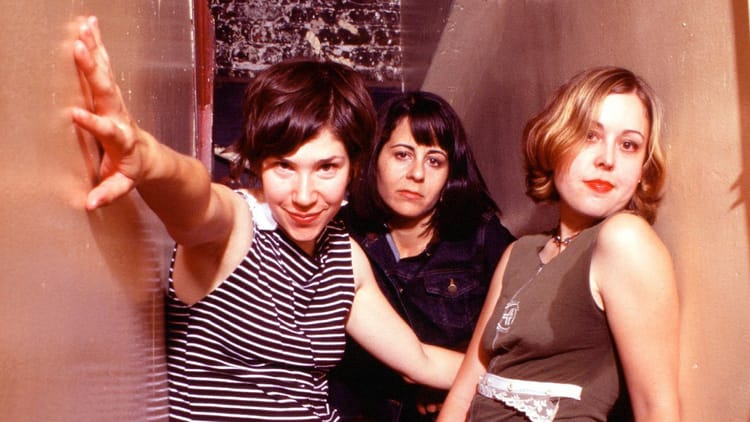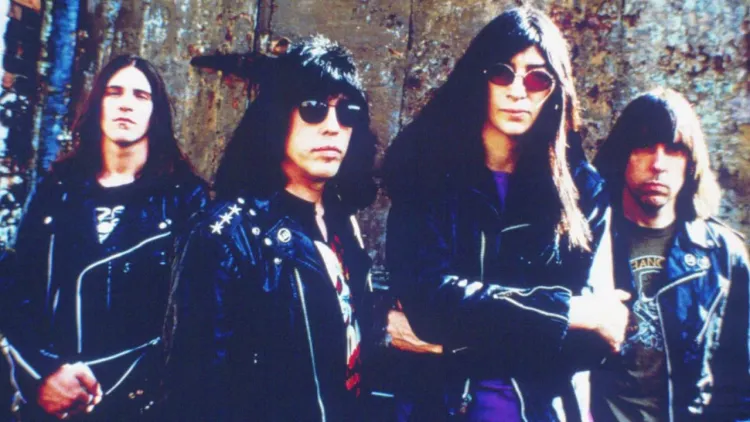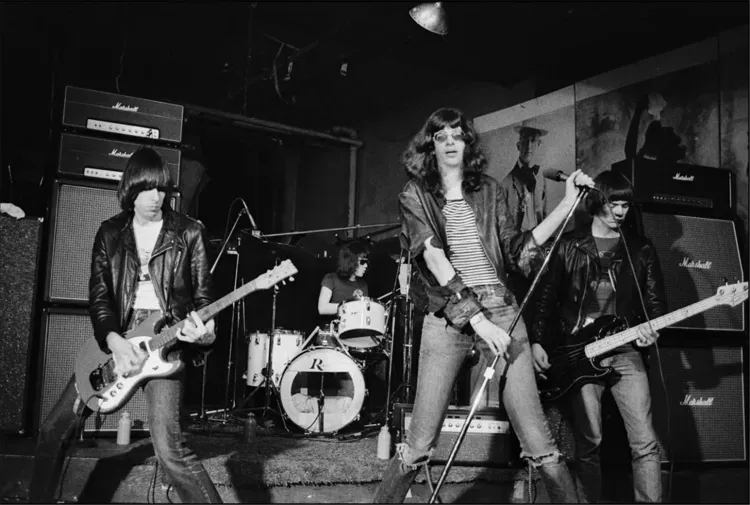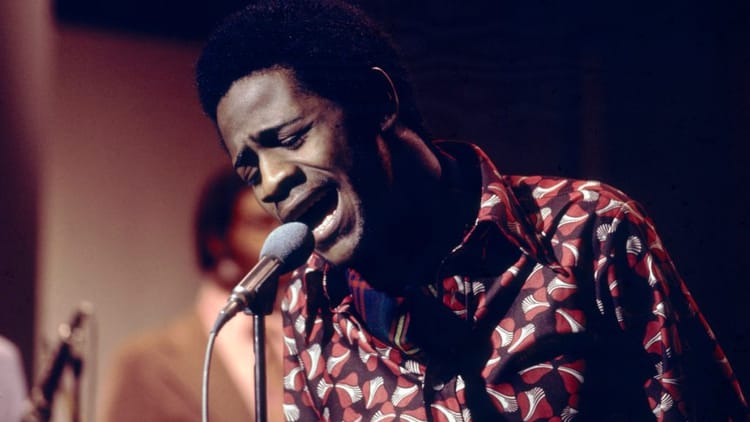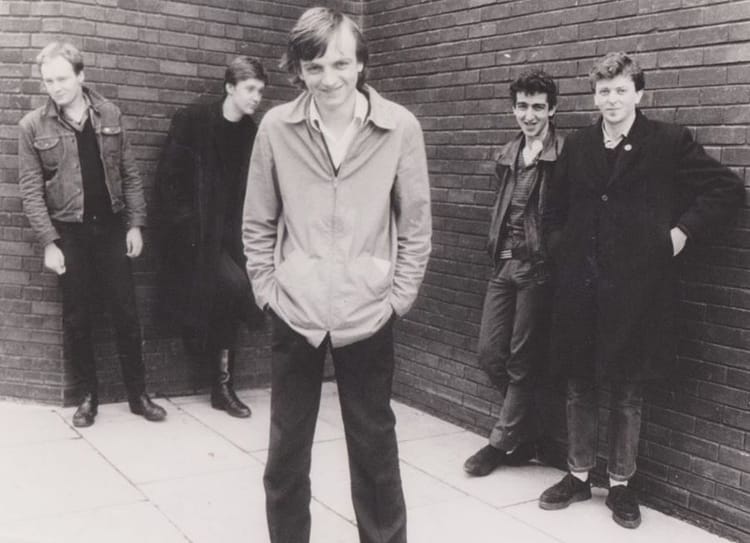The Beatles, pt. 2: Anthony's Album Guide
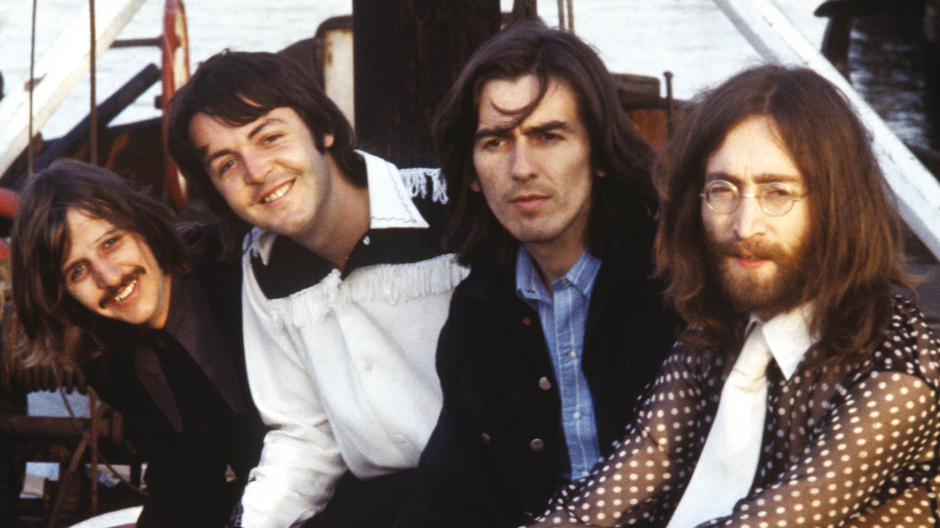
My handy dandy profoundly subjective numerical rating scheme is decoded here. You can find pt. 1 here.
Sgt. Pepper’s Lonely Hearts Club Band (1967) 7
Magical Mystery Tour (1967) 6
The Beatles (1968) 8
Yellow Submarine (1969) 6
Abbey Road (1969) 6
Let It Be (1970) 8
1967-1970 (1973) 8
Past Masters, Vol. 2 (1988) 6
When we last left our Fab Four, the band had recorded Revolver, their most musically adventurous album yet. Brains rattling with new ideas and countless pharmaceuticals, they found themselves extremely disinterested in shouting “woo!” on stage, a situation not helped by death threats, police violence, stadium acoustics, and an audience that refused to stop screaming during the half-hour setlist. Another multi-month vacation followed their last tour ever, the band never more distanced from each other. Paul McCartney belatedly joined the LSD club, listening to albums like Pet Sounds and Freak Out!, John Lennon sat anxious & isolated on a film set. George Harrison studied the sitar in India. Ringo Starr politely waited at home to be summoned.
Summoned he was in late 1966, as McCartney & Lennon were keen to record a psychedelic journey through their musical fascinations & personal psyches, one that would make Revolver look like Please Please Me. Money and time were no issue, allowing for endless tinkering and tape manipulations, overdubs and calls for a clarinet trio. George Martin and an elite team of professionals would help manifest the elaborate, unprecedented ambitions of these costumed freaks who were jazzed to cover Chuck Berry live to tape less than five years earlier.
The video for "Strawberry Fields Forever," which presumably scared the crap out of Cameron Crowe's mother.
The first tracks heard from this studio session to end all studio sessions was the double A-side of “Strawberry Fields Forever” and “Penny Lane,” possibly the two most impressive pieces of pop-rock history that I don’t really care about. The woozy grandeur of “Fields” is hard to deny, but I find Lennon’s lyric to be a particularly grating example of stream-of-conscious nattering during a drug trip. “No one I think is in my tree/ I mean, it must be high or low/ that is, you can’t, you know, tune in/ but it's all right/ that is, I think it’s not too bad.” Heavy? “Penny Lane” is a vibrant, dizzying portrait of the world through a happy child’s eyes, complete with reportedly fascinating chord changes and piccolo trumpet. But even if that solo was Ringo farting through a harmonica, the technical accomplishment would remain just that: technical. Maybe it came out more than a year before the Kinks’ Village Green Preservation Society, and blew more minds, but I know I find that a more affecting and meditative reflection on a British childhood, if slightly less staggering a studio construction.
As recently noted by John Mulaney, just seeing the Beatles return with mustaches must have mind-blowing enough for the children of 1967. I can only imagine how the contents of Sgt. Peppers’ Lonely Hearts Club Band more than delivered on the promise of each unshaved hair. Then again, “Winchester Cathedral” by the New Vaudeville Band was a global number one almost a year earlier, so weirdos in suits doing druggy versions of music hall had cultural precedent. Not to reduce the Beatles’ efforts to epaulets, faux-megaphone and brass, but it’s worth challenging the idea that they independently invented every aspect of this exciting new era.
The New Vaudeville Band in 1966, somehow rarely mentioned as an influence on Sgt. Peppers'.
Considered the greatest album ever, back when rock had to prove itself to Leonard Bernstein and boomers’ parents, my own respect for Sgt. Peppers’ is derived from a few specific tracks. There’s “With A Little Help From My Friends,” Lennon & McCartney’s most darling summation of the Ringo gestalt. “When I’m Sixty-Four,” Paul’s romantic dream of marriage making senior life as adorable as childhood. “Getting Better,” its jubilance about adulthood interrupted with breathtaking honesty about what hateful, hurtful shitheads they were just a few years earlier (tumblr types sometime use the song as exhibit A that John Lennon was an irredeemable monster, ignoring that he was acknowledging his crimes in frank, unequivocal terms decades before fans were even hoping men might do that, examining the cycle of violence that birthed his abusive behavior without using it as an excuse). The climactic “A Day In The Life” provides the emotional and cultural context the rest of the album lacks: music, memory & drugs as an escape from life’s misery and lack of meaning (or, as per McCartney’s jaunty bridge, music, memory & drugs as an intriguing dream after a decent enough day). The other tracks are mostly fanfare, misfires or elaborate redundancies, Paul’s slices of life now coming with trite morals and George’s sitar exercise almost twice as long as the one on Revolver.
Most people can’t agree on which of the following 1967 singles are insufferable. I adore “All You Need Is Love,” the silliness of the climax underscoring how much fun orchestral arrangements can be, the ache in Lennon’s voice undercutting the confidence of the lyric. As with his most famous solo track, 1971’s “Imagine,” I hear a man pleading for the world to share his hard-earned faith in utopian possibility. “All You Need” is directed at the kids who need hope, “Imagine” to the adults who keep utopia from happening. At the same time, I can’t stand “Hello, Goodbye,” McCartney almost metaphysically smug about his self-perceived good nature. Both, along with the “Fields”/“Lane” single, were included on the US Magical Mystery Tour album to pad out the five songs on a UK double EP. “I Am The Walrus” and “Baby, You're A Rich Man” may be the most fun the band had with their trippy tapes and toys, while the other tracks are recommended to those who can’t believe I’d give Sgt. Peppers' a mere 7. Reportedly there’s a TV movie attached to Magical Mystery Tour, directed by the Beatles themselves, but neither human nor algorithm has ever suggested I see it.
A trailer for the blu-ray release of Magical Mystery Tour, with Ringo blaming Paul for the movie's existence. In the trailer.
Though not released until 1969, the four “new” songs on the Yellow Submarine soundtrack were the final examples of this phase of the band, the Lennon & McCartney numbers yet more multi-tracked whimsy. Ironically, the pair from Harrison serve as the dawn of his recognizable adult self. “Only A Northern Song” is a downright scathing parody of their psychedelic stage (“if you’re listening to this song/ you may think the chords are going wrong/ but they’re not/ we just wrote it like that”), inspired by his anger about their publishing company being publicly held. Rescuing his status as the mystic rather than the accountant is “It’s All Too Much,” a ragged, clomping, six-minute feedback fest that remarkably resembles glistening post-psychedelic alt-drone like The Beta Band and Yo La Tengo. Though relatively obscure, the track was covered by acts like pre-Steve Perry Journey and Grateful Dead, but, notably, nobody played it remotely as wild as the Beatles did until The Church.
Regrettably, instead of including some concurrent singles, the B side of Yellow Submarine features George Martin’s score for the animated movie (which the Beatles didn’t even bother to provide their own voices for, making it the first of too many movies where a smorgasbord of surreal sight and sound exists just to say “hooray for The Beatles”). Lennon rightly summed up Martin’s work as “all this terrible shit,” though there’s a unexpected cue in the middle of the mindless foofaraw that hilariously sounds right out of Star Wars. I won’t spoil which track it’s on, in case you bother checking it out.
How many Beatles do you think saw Yellow Submarine all the way through. One? Two?
Whether or not you believe the Beatles were the artistic vanguard or rich dudes following trends, they were evolving at a remarkable pace, moving from clean-shaven jangle to semi-ironic mustaches and orchestral overdubs to long, long hair and fuzz pedals in about two years, beards just another year away. The death of manager Brian Epstein, as well as dubious adventures in transcendental meditation and venture capitalism followed the summer of love (plus one single, a Fats Domino tribute), the band finally getting down to musical business in the summer of 1968. With McCartney and Harrison feeling their compositional oats, and Lennon refusing to sit next to anyone other than new girlfriend Yoko Ono, the sessions were punchy, grumbly affairs where each member told the others what to do on their songs, if they even appeared on them. First, they released an epochal single where Paul finally makes good on his self-proclaimed bonhomie for seven minutes, arguably inventing the power ballad, while John gets away with defensive centrism by plugging the guitars right into the mixing board. Then came a double LP, self-titled by default because the band was fresh out of concepts.
The Beatles (a.k.a. The White Album, because the band couldn’t be bothered to deal with cover artwork either) is such a brazenly bloated affair, five sides’ worth of music crammed onto four, that it’s taken me decades to admit it’s worth owning in full. Gorgeously produced examples of hard rock professionalism (“Dear Prudence,” “While My Guitar Gently Weeps,” “Helter Skelter”) co-exist with gentle balladry (“Blackbird,” “Julia”), ugly little jokes (“Happiness Is A Warm Gun,” “Why Don’t We Do It In The Road”) and everything in between. If they’d cut out everything between “Helter Skelter” and “Good Night,” and let the remaining tracks breathe over the double album they’d still fill (ok, put “Savoy Truffle” back in for George’s pride), I might praise it as much as I do A Hard Day’s Night. As it stands, I have to wonder if Charles Manson ever admitted he didn’t need that many confirmations of an impending apocalyptic race war.
The Beatles, at the beginning and end of their 1969 tour.
Despite the increasing number of experimental side-projects, the group wasn’t quite ready to admit they were three distinct singer-songwriters who’d outgrown the pop-rock construct they’d created. It was their home, and everybody still liked Ringo. McCartney, the most deeply in denial, somehow thought they could go into a film studio with fans and cameras to bash an album out live, the rudderless sessions initially only providing a 45rpm of blues-rock with keyboardist Billy Preston and a brief gig atop their office. The remaining tracks were then given to producer Glyn Johns to play with, while the band negotiated the hiring of a money manager and the recording of one last album (preceded by a cute single where John bitches about how people treat his new avant-garde artist wife, with Paul kindly playing drums, unaware John would soon have a bed installed in the studio so Yoko could still watch them after a car accident).
The album, Abbey Road, is without question, my least favorite of the band’s full-length studio efforts. The arrangements are top-notch but completely anonymous. Their exceptionally competent facilitator George Martin was put in charge purely for reasons of compromise, and his idea of novelty was a solid-state mixing desk for the smoothest sound possible. Side A has a decent-enough solo single from each member (even Ringo, a red flag), plus dreadful portents of McCartney cutesypoo pop and Lennon rawk drudgery to come (“Maxwell’s Silver Hammer” and “I Want You (She’s So Heavy),” respectively). Harrison, the only one who bothered to give the album two hits, rightly got to lead side B (another red flag) with what’s currently the band’s sole billion-play song on Spotify (it's very nice). Then comes a bit of three-part harmony and “the medley”: Paul’s sighing fuck-you to Allen Klein (an accountant who managed to trick both the Stones and the Beatles into thinking he was their scorpion, rather than his own), followed by bits and pieces of music he and Lennon never bothered to turn into complete songs, strung together because Martin and McCartney decided expert, kaleidoscopic whimsy was the Beatles’ finest accomplishment. Lennon hated it, and so do I. Though the album is now considered their best ever by people who think the band has to prove itself to “yacht rock” playlisters and post-millennial Tame Impala fans, I mostly hear placid, hi-tech mushbrain. Abbey Road has enough jams in isolation to merit a 7, but I’m docking it a point for making me bitch like it’s a 5 when it’s on.
Please enjoy this compilation of rehearsal footage for "Maxwell's Silver Hammer." I dare you.
If that’s not contrarian enough for you, I greatly prefer the hodgepodge recorded before and released after Road. I respect McCartney’s outrage that Allen Klein gave the Get Back sessions to Phil Spector, who threw in caustic asides from the band between the rockers and drowned the ballads in symphonic hoo-ha. I also can’t blame McCartney for revealing to the public this wasn’t really a band anymore, as Lennon had secretly flown the coop. But however fraught the recording and patchwork the outcome, Let It Be sounds like the Beatles I love. John & Paul’s voices playfully dance around each other on the deep cuts, George casually tearing a solo off here and there. The rough edges provide a loose, “hey, let’s get the band back together for our 10th high school anniversary” vibe that works great for this aging Pavement fan. As for the famous ballads, “Across The Universe” is a disquieting, meditative whisper for inner peace and acceptance (why a bunch of rock stars sang it at the Grammys after Hurricane Katrina, I’ll never understand), Paul’s title track framing the same stance in gospel bombast. I love both, but “The Long And Winding Road” was gonna be a chore in any mix. What the song truly needed was Torben Ulrich saying “I would delete that.”
While my take on this period looks sacrilegious from a Jann S. Wenner perspective, I have enough love for the material that 1967-1970 is worth owning alongside The Beatles and Let It Be, due to all the ’67 & ’69 chestnuts and stray singles it brings together. The overlap makes Past Masters Vol. 2 more redundant than its predecessor, however, with only that wonderful ’66 “Paperback Writer”/“Rain” single and maybe the goofball B-side “You Know My Name (Look Up My Number)” to distinguish it. As for later compilations and archival releases, I’ll be sure to let you know if and when I find something worth keeping around. 2000’s 1 is an admirable one disc presentation of the toppermost of their poppermost and fine stocking stuffer for those too young or too old to dig deep, assuming they still fuck with physical media.
BBC footage of the show where they first aired "All You Need Is Love." Nothing makes it easier to appreciate how exciting these guys must have been in the moment than boring-ass black & white tv footage from the moment.
And there you have it: The Beatles! Thanks for your time! I hope they passed the audition.
